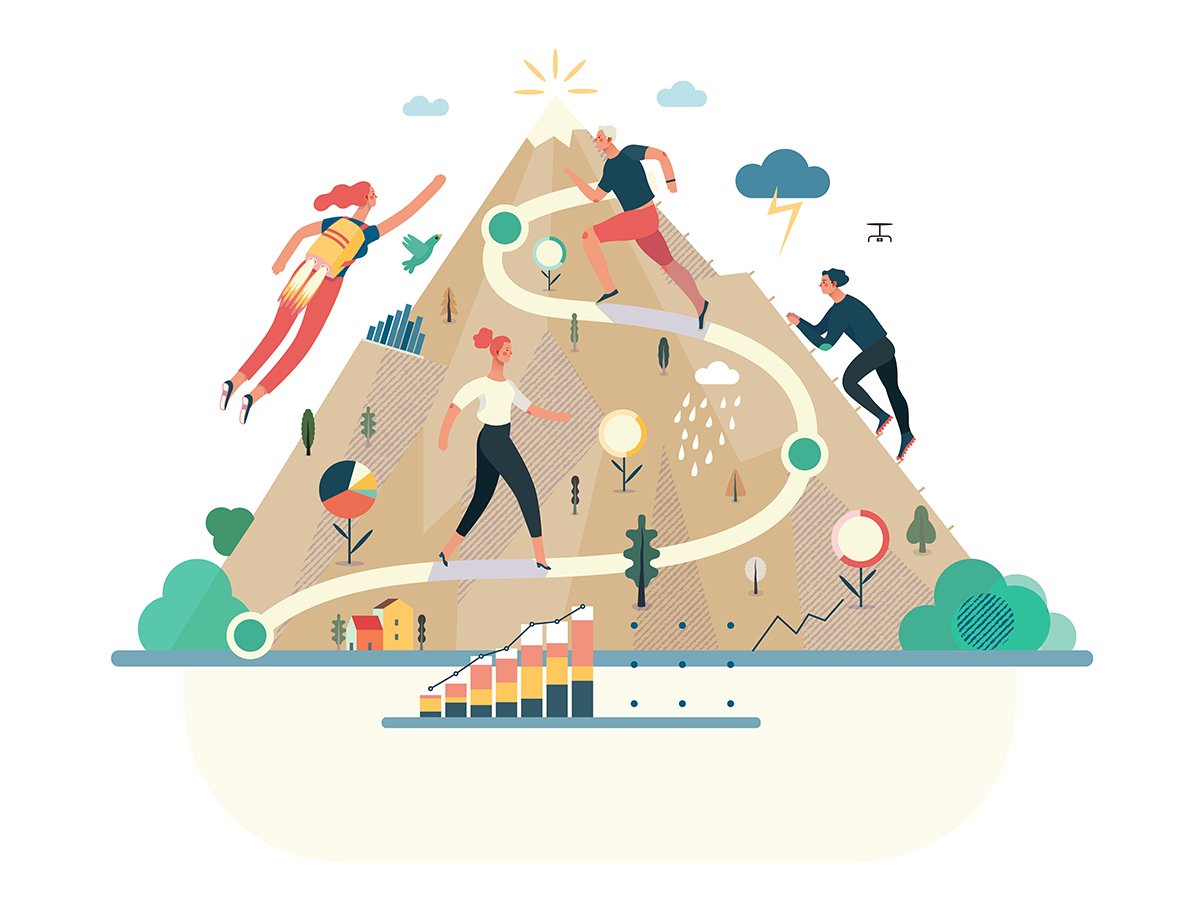Part 1 of 2
Finding a way to navigate careers from an organisational and individual perspective is now new, but COVID-19 is turning it on its head. Rosemary McLean gives insights on fresh approaches you can deploy to meet everyone’s career needs, with renewed energy.
Supporting the career development of others has been a constant in my 30-year career. My passion for this work has always come from what many career theorists refer to as a sense of calling, founded in an intention to help others achieve their potential whatever their circumstances. My practice is grounded in looking at things from a systemic point of view; and careers are complex! It’s the interplay of how individuals direct their lives – influenced by their access to learning and opportunities – in the context of structural systems, economics, new technologies, organisational culture, policy and now a Pandemic. So, it’s with this perspective that I’m thinking about what’s needed to support people in these challenging times.
In the current environment a focus on helping individuals to feel empowered, in control, and equipped to deal with change is even more important, as we collectively try to move forward. Career is a central concept, it relates to our sense of work satisfaction, our contribution and our purpose. For many it’s about keeping employed.
Over the years we have seen shifts in the way individuals and organisations view careers, reflecting the prevailing economic and cultural norms. In developed economies ‘The War for Talent’, published in the late 90s, resulted in many organisations viewing ‘top talent’ as the focus for investment, based on the belief that the future success of an organisation resides in a few people. This meant managed careers for talent groups, with the rest of the workforce left to their own devices.
Whilst there is still an urgent need to nurture a succession pipeline and to have talented people lead organisations, one of the things COVID-19 has put into sharp relief is who we view as a key worker, with front-line staff such as cleaners and delivery drivers being seen as critical. Will this mean that organisations will take a more holistic view of who matters – and recognise the talents of everyone?
The signs were definitely there pre-COVID. Many organisations have already prioritised the need to nurture and upskill internal talent, to offer compelling careers, and move people within their organisation – a more inclusive view of talent management. This is also fuelled by wider business trends such as digital transformation. The increased focus on diversity and inclusion is driving change and making employers step up to support mobility and access to opportunities.
In our ‘Careers of Tomorrow Today’ publication we highlight some of the strategic imperatives for putting people at the heart of business transformation and recovery now. The organisations that get this right will build trust within their workforce, fostering a positive reputation and the agility to respond. It’s about taking people with you and even when hard decisions need to be made, treating people with care so they can re-focus their career and take control. This aspect of ‘humanising’ the workplace has never been more important.
There is now an opportunity to do more to address the career needs and concerns of employees, recognising not all employees are experiencing the same thing during the pandemic. It’s about investment for the future.
I’m advocating for an overall Agile Response to careers, where resilience, adaptability and transformation are fundamental. I’ll review resilience here, and in the next article, share insights on adaptability and transformation.
Resilience
Resilience is not a new topic but is hugely relevant now, as without it individuals can’t be productive, purposeful, healthy, nor have the capacity to direct their own future, whatever situation they are in. COVID-19 has tested this finite commodity. Well-being strategies on their own are only part of the solution, as for many people it’s their career, work and feeling employable that build ‘career resilience’. But if people are isolated, anxious, or burnt out, they haven’t the capacity to move forward. So building resilience and psychological safety is a key enabler.
| Individual actions | Organisational Support |
|
|
Research has shown that the most powerful career management response is a combination of strategic organisational support and individual agency. Find out more about our Agile Response package which supports HR Leaders to ‘Put People First’ and gives managers the confidence and skills to nurture careers in this challenging time.




